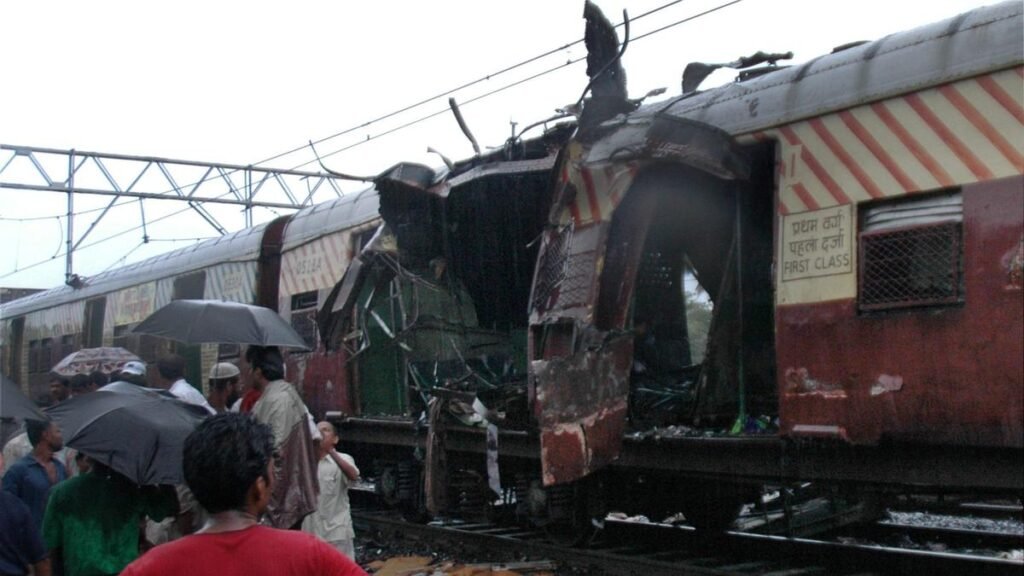Bombay High Court acquits all 12 accused in the 2006 Mumbai train blasts, citing torture-induced confessions and unreliable evidence. A stunning blow to ATS and a pivotal moment in India’s judicial history.
The Unthinkable Has Happened
July 21, 2025 — A date that will reverberate through India’s justice corridors. The Bombay High Court has stunned the nation by acquitting all 12 men convicted for the devastating train blasts of July 11, 2006—blasts that claimed nearly 190 lives and injured more than 800. What began as a widely hailed success for Mumbai’s Anti-Terrorism Squad (ATS) now lies in ruins, as the HC exposes the horrifying reality behind those convictions.
Justice or Illusion?
The High Court delivered a scathing verdict: the ATS created “a false appearance of having solved a case”, relying on evidence so flimsy it collapsed under scrutiny. No credible eyewitnesses. Confessions born from “barbaric and inhuman torture”. Explosive recoveries—all tainted and “vulnerable to tampering”. In their 671-page ruling, Justices Anil Kilor and Shyam Chandak did not hold back.
The Long Years Behind Bars
Do the words “acquitted after 19 years” begin to capture the agony? Eleven men walk free today; one, tragically, died in custody from COVID in 2021. Among them, Wahid Shaikh, previously exonerated in 2015, endured nine years behind bars. They’ve lost decades—extended birthdays, holidays, years of their children’s lives.
Mohammed Ali Shaikh and Zameer Shaikh recounted their hell: torture, threats, broken families, yet they survived. Their crime? Allegedly hosting bomb-making operations—charges the HC has mercilessly thrown out.
The ATS on Trial
What’s truly horrifying is not just the verdict but the system that built it. The ATS’s method? Extract confessions via torture, plant fake RDX evidence, and use unreliable witnesses. The HC was chillingly bold: these tactics passed as truth, creating a façade of justice. The court’s message couldn’t be clearer: “You can’t build a terror case on broken men and broken law.”
Political Fallout & Supreme Court Showdown
Predictably, the Maharashtra government has cried foul. CM Fadnavis called it “shocking” and already plans to appeal to the Supreme Court. Veteran prosecutor Ujjwal Nikam demands swift action, drawing parallels to the 1993 Mumbai blasts and emphasising a pattern of RDX use.
On the flip side, AIMIM chief Asaduddin Owaisi has voiced outrage: 12 Muslim men jailed for 18 years for a crime they didn’t commit? He’s demanding investigations into the ATS and redress for these families.
The Unanswered Burning Question: Who Did It?
This colossal acquittal leaves us with a haunting silence—who then orchestrated those blasts? The court itself conceded the real perpetrators remain at large. Nineteen years on, our system may have sacrificed justice in a rush for results.
In Retrospect: What Does This Mean for India’s Democracy?
| Issue | Implication |
|---|---|
| Legal Precedent | Another case in the crosshairs—accused from marginalised communities pinned to state accusations with scant evidence. |
| ATS Credibility | One of our flagship counter‑terror units now stands discredited in the corridors of justice. |
| Minority Rights | Another case in the crosshairs—accused from marginalized communities pinned to state accusations with scant evidence. |
| Public Trust | When justice equals expedience, democracy falters. Today’s verdict cracks the façade. |
Final Word
This isn’t just a case outcome—it’s a crisis of conscience. Justice delayed may be justice denied, but justice manufactured is justice perverted. These men’s freedom is vindication, but their scars—deep and unerasable.
Now, let’s ask ourselves: Will India’s political class, civil society, and media thunder for those 189 souls lost—and for the families still crushed between carnage and acquittal? Justice wasn’t served for them either, yet.

